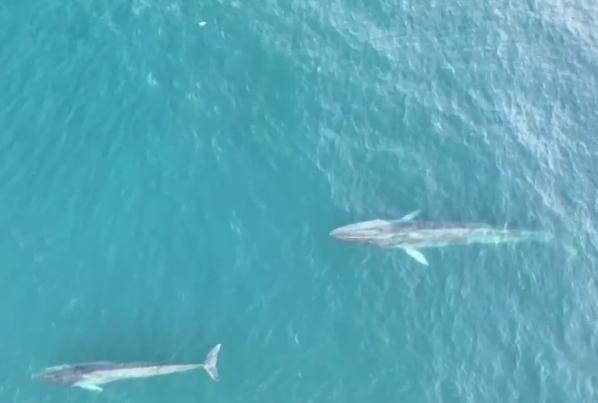The 2023 season of the Fin Whale Project has started in Barcelona with good news: the association EDMAKTUB has sighted six whales off the Catalan coast, including a female with a calf.
This is excellent news because a hatchling had not been sighted since 2017, showing a possible recovery of this species in the area.
EDMAKTUB is dedicated to the study of marine mammals and has been monitoring whale populations along the Catalan coast for more than five years.
In last year’s report, they noted the presence of up to 132 fin whales, along with other species of cetaceans, turtles, seabirds and fish.
This demonstrates the great richness in biodiversity of the Catalan coast and the Catalan-Balearic sea.
Whales off the Catalan coast: one of them female with a calf
The rorqual whales visit the Catalan coast mainly to feed and are not just passing through.
Feed shortages due to lack of rain and high temperatures may be a problem for this year’s season.
As their objective is to forage for food, fin whales may move in circles in the area and even remain cruising for several days or sometimes weeks.
In addition, they are faithful to the Garraf and the Catalan coast, which they visit in different seasons.
Of the 132 animals identified, more than 22% have been sighted in different years.
About the fin whale
The Balaenoptera physalus, better known as the fin whale, is the second largest mammal in the world, surpassed in size only by the blue whale.
It can reach up to 24 meters in length and weigh around 70 tons.
It is an endangered species that inhabits the open sea, but can also be found in coastal areas of temperate or cold waters.
Fin whales can live up to 80 years, as long as they do not encounter frequent merchant ships, boats and pleasure craft in summer, which they find it difficult to avoid when breathing at the surface.
Collisions with ships are a real danger and mortality risk for whales, as is the case with sperm whales.
NGOs in some countries have suggested to the International Maritime Organization that, as far as possible, they try to divert shipping routes away from the whales’ main habitats.
They also request to reduce the speed of ships to avoid collisions and to create a technological system to alert captains of the presence of whales in high-risk areas.
The sighting of the six whales, including a calf, off the coast of Barcelona is encouraging news for the conservation of this species and its habitat.

